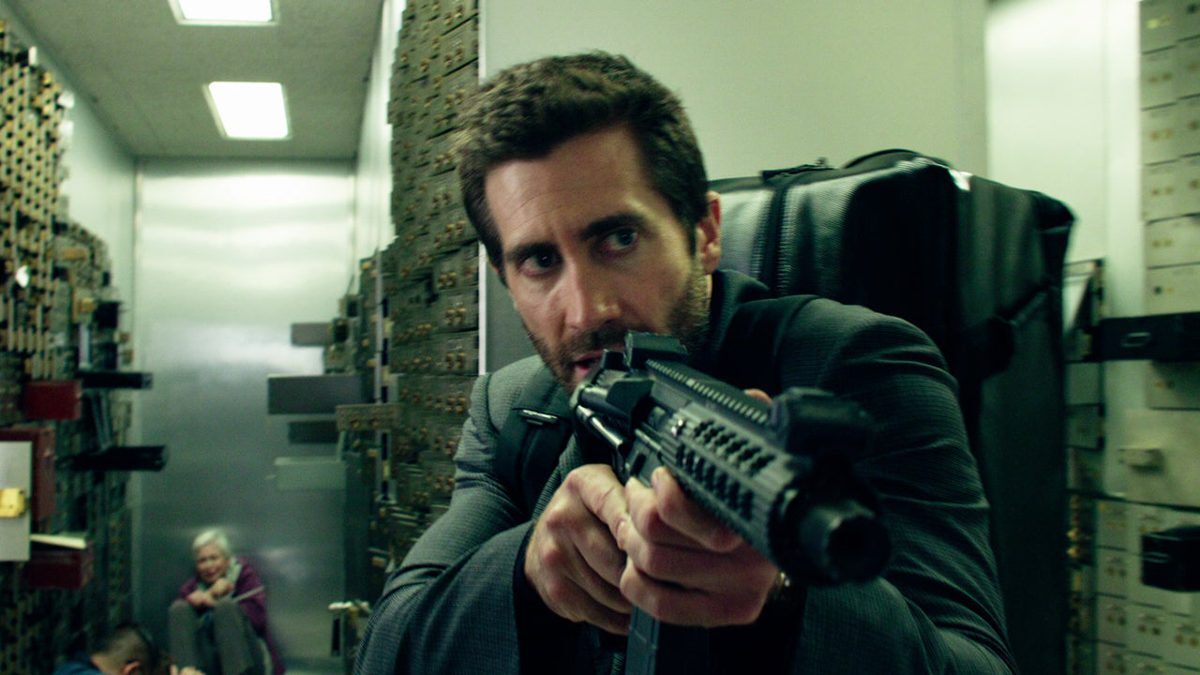No one goes to a Michael Bay movie for a message. In fact, they hardly expect two-dimensional characters. Like Steven Spielberg, before the director became lazy and self-indulgent, Bay is a master at transforming a movie into a roller coaster ride.
At times, his movies move so fast one suspects Bay and his cameraman are on Day Three of a cocaine binge. As such, the viewer is so entertained and exhausted he doesn’t notice the glaring plot holes and that the characters are often simply moveable pieces to put in front of enormous explosions or behind red-hot machine guns.
Bay’s latest film, “Ambulance,” is no different. In fact, this may be the fastest and hence, most accomplished of Bay’s oeuvre. Part “Die Hard,” part “Speed,” Bay delivers the goods, masterfully juxtaposing the claustrophobic confinement of the ambulance with the wide-open violence outside of it.
But Bay’s films are so fast-paced and impressively violent that viewers can miss the patriotic subtext that makes him unique in military-bashing Hollywood.
The plot of “Ambulance,” such as it is, is seemingly simple. Faced with mounting bills for his dangerously ill wife, a military veteran played by an effective Yahya Abdul Mateen II is forced to team up with his amoral, career criminal brother, played by an unusually masculine Jake Gyllenhall, for a heist job. But after robbing a Los Angeles bank of $32 million, things go spectacularly wrong for the pair.
Seizing an ambulance, occupied by a near-fatally wounded cop and a half-cynical, half-dedicated first responder, played effectively by Eiza Gonzalez, the occupants go on a dizzyingly and bullet-ridden ride pursued by the police.
I don’t know precisely what Bay’s politics are. Unlike his frequent partner Jerry Bruckheimer, one of the few uncloseted conservatives in liberal Hollywood, Bay is refreshingly low key about them. In a 2015 interview, he stated, “I don’t feel the need to go out and tell people what to believe politically.”
But what he doesn’t do with the set-up of “Ambulance” is as much revealing about him as the words he puts in the mouths of characters from previous movies.
In the hands of another director, the film would make political points about how much nobler people of other colors are than Caucasians in that Mateen has a moral center whereas Gyllenhall does not. But Bay doesn’t play that rigged game, and the characters’ qualities aren’t intrinsic to their skin color. They are people, not propaganda symbols.
The connecting threat to Bay’s cinematic output isn’t just the special effects, which is obviously where all the budget went after the actors took their cut, but also his love of America and the soldiers who protect the country. In a 2015 interview, he stated, “I’m very proud of my country.”
Even unuttered, the more discerning viewer can detect a John Wayne-type full-throated roar against those who bash the armed forces. Even in the robot-dueling, building-demolishing “Transformer” series, Bay pauses long enough to show just how bad-ass America and the U.S. military are.
To further emphasize the conservatism of Mark Wahlberg’s character, Bay decorates the character’s yard with American flags. At times it’s hard to see the grass amidst all the flags. He also slips in some anti-big government sentiment. When typically, the American government uses a crisis, in this case the threat of killer robots, to gather more power over citizens, Wahlberg all but roars about the dangers of “messing with people from Texas.”
Along with this red-state bumper sticker patriotism, Bay also inserts into his high-octane films a critique of then-President Barack Obama and his “soft” foreign policy. Specifically identified as the president in the “Transformer” series, Obama is shown to be merely an updated version of Neville Chamberlain. Obama tries to engage the killer robots in what non-hawkish liberals call “meaningful dialogue” — read a dangerously naive worldview—while tossing the “good” robots to one side.
Even without his chest-thumping patriotism, Bay is critically panned by movie reviewers who note, sometimes validly, his sacrifice of character for expertly-rendered violence. But Bay is also underrated. It takes skill to take demanding viewers on a suspenseful ride, and equal skill to pair it with a patriotic message.









